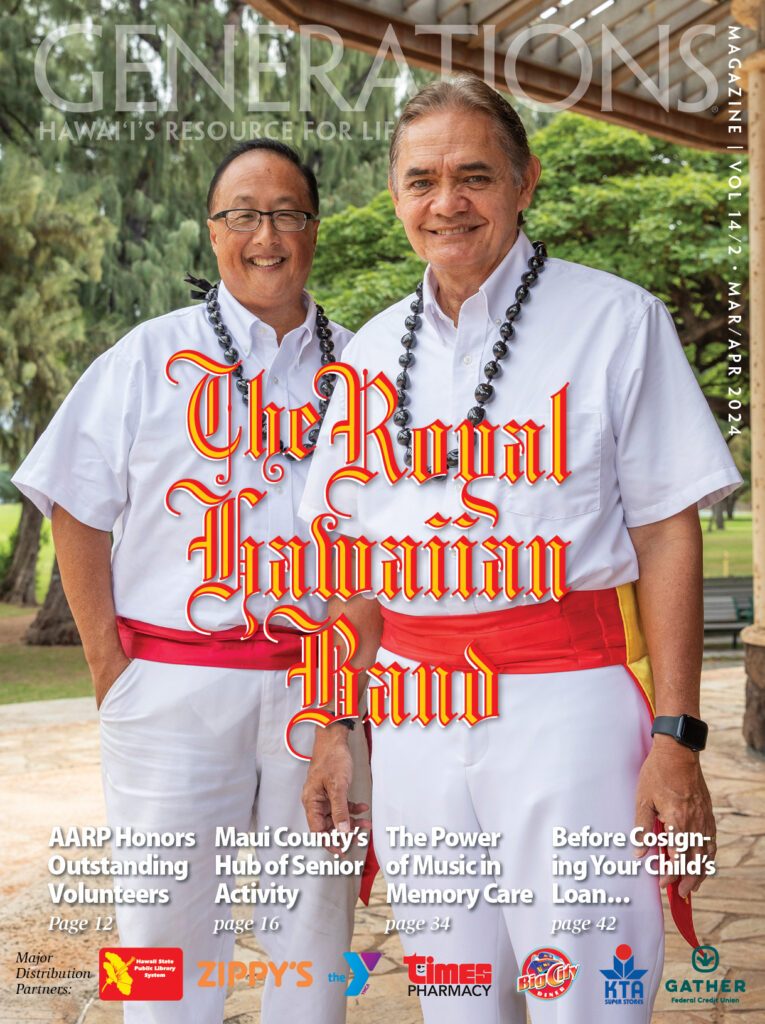Margaret A. Perkinson, PhD, University of Hawaii at Mānoa | Nov 27, 2020 | Column, Dec 2020 - Jan 2021
Social isolation and loneliness are toxic to everyone’s health, but especially older adults. Given COVID-19 mandates to limit face-to-face contact for the foreseeable future, these feelings are certain to increase, accompanied by threats to health and well-being.
Margaret A. Perkinson, PhD, University of Hawaii at Mānoa | Oct 7, 2020 | Giving Care, October - November 2020
Healthcare systems are changing, with radical implications for family caregiving. Cost-saving reductions in hospital stays ensure that patients are discharged “quicker and sicker.” Management of complex chronic care thus moves to the home, and responsibility for that care shifts from medical professionals to family caregivers.
Margaret A. Perkinson, PhD, University of Hawaii at Mānoa | Aug 4, 2020 | August - September 2020, Giving Care
Hiring a home care aide represents a major transition in family caregiving, especially when the care recipient is a person with dementia (PWD), less able to express his or her needs. Initial encounters may stress both sides.
Margaret A. Perkinson, PhD, University of Hawaii at Mānoa | Jun 2, 2020 | Column, June-July 2020
When under stay-at-home orders, online resources enable participation in the outside world. Visit the UH Center on Aging Facebook page for a continually updated list.
Margaret A. Perkinson, PhD, University of Hawaii at Mānoa | Jan 31, 2019 | Column, February - March 2019
Ageism is discrimination and negative stereotyping on the basis of a person’s age. It permeates the media and everyday conversations to such an extent and in such subtle ways that people may accept negative stereotypes of older adults (“forgetful,” “grouchy,” “less competent”) as truth, unconscious of their bias.
Margaret A. Perkinson, PhD, University of Hawaii at Mānoa | Dec 2, 2018 | Column, Dec 2018 Jan 2019
I have learned a lot about setting goals from interacting with my smartwatch! The S.M.A.R.T. approach to setting goals has been around far longer than smartwatches, but the watches demonstrate perfectly the basic S.M.A.R.T. concepts originally created in 1981 by George T. Doran as a management tool but relevant for any type of goal.
Margaret A. Perkinson, PhD, University of Hawaii at Mānoa | Sep 26, 2018 | Column, October - November 2018
Family caregivers of older adults undergo fairly predictable stages in their caregiving careers. Each stage brings different challenges and requires different kinds of help for both the care receiver and family caregiver.
Margaret A. Perkinson, PhD, University of Hawaii at Mānoa | Jul 29, 2018 | August - September 2018, Column
Momentia (rhymes with dementia) is an arts-based movement targeting persons with dementia and their care partners
that “celebrates life in the moment.” It is a strengths-based grassroots movement to empower and energize those impacted by memory loss to remain connected and active in the community.
Margaret A. Perkinson, PhD, University of Hawaii at Mānoa | May 19, 2018 | Editorial, June - July 2018
Older adults typically want to live in their own homes for as long as possible. A 2012 report from AARP showed that only 65 percent of persons aged 60-70 and only 43 percent of those aged 70 and older find it very easy to live independently. Besides making physical...
Margaret A. Perkinson, PhD, University of Hawaii at Mānoa | Apr 10, 2018 | April - May 2018, Column
Most of us recognize the importance of establishing a legal will to document and ensure that our material goods are passed on to the persons and/or causes of our choice. But how many of us have written comparable documents to ensure that our values and beliefs, our...
Margaret A. Perkinson, PhD, University of Hawaii at Mānoa | Dec 2, 2017 | Dec 2017 - January 2018, Special Feature
The term “millennial” typically evokes certain images in our minds. Born between 1985 and 2004, millennials have been labeled the “Me Generation,” “Me, Me, Me Generation,” “Peter Pan Generation” and “Boomerang Generation.” These are far from complimentary. Aside from...
Margaret A. Perkinson, PhD, University of Hawaii at Mānoa | Sep 30, 2017 | Column, October - November 2017
Volunteering — an activity that is voluntary, unpaid, structured by an organization and directed toward a community concern — is as beneficial for the older adult who engages in it as it is for those on the receiving end. While fewer older adults volunteer compared to...
Margaret A. Perkinson, PhD, University of Hawaii at Mānoa | Jul 23, 2017 | Aug-Sept 2017, Editorial
by Margaret A. Perkinson, PhD, Center on Aging Director, UH-Mānoa Aging brings its own set of commonly experienced adversities: changes in health, declining ability to conduct everyday tasks, possible relocation to residential care, and illnesses and deaths of beloved...
Margaret A. Perkinson, PhD, University of Hawaii at Mānoa | Jun 6, 2017 | Health, June-July 2017
Never in the history of humankind have so many people lived so long. Anthropologists estimate that on average, Neanderthals lived little more than 20 years; only a small percent reached 40. In 15th century Europe, the average life expectancy reached a scant 35 years. Around the turn of the 20th century, however, advances in public health (clean water, waste disposal, vaccinations) decreased infectious diseases, greatly reducing infant and child mortality and increasing life expectancy.

